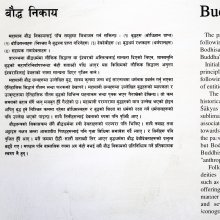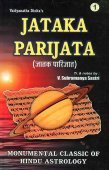Stri, Stṝ, Strī, Stṛ, Śtrī, Shtri: 38 definitions
Introduction:
Stri means something in Buddhism, Pali, Hinduism, Sanskrit, Jainism, Prakrit, Marathi, Hindi, Tamil. If you want to know the exact meaning, history, etymology or English translation of this term then check out the descriptions on this page. Add your comment or reference to a book if you want to contribute to this summary article.
Stri has 37 English definitions available.
The Sanskrit terms Stṝ and Stṛ and Śtrī can be transliterated into English as Str or Stri or Shtri, using the IAST transliteration scheme (?).
Images (photo gallery)
Languages of India and abroad
Sanskrit dictionary
[Deutsch Wörterbuch]
Source: Cologne Digital Sanskrit Dictionaries: Böhtlingk and Roth Grosses Petersburger WörterbuchStri (स्त्रि):—Stern s. u. 2. star .
--- OR ---
Strī (स्त्री):—f. [Uṇādisūtra 4, 165.] Declin. [Pāṇini’s acht Bücher 6, 4, 79. fg.] [Vopadeva’s Grammatik 3, 20. fgg. 81. fg.]
1) Weib, ein weibliches Individuum, Gattin (Gegens. pumaṃs) [Amarakoṣa 2, 6, 1, 2.] [Trikāṇḍaśeṣa 2, 6, 1.] [Hemacandra’s Abhidhānacintāmaṇi 503.] [Halāyudha 2, 326.] [Ṛgveda 1, 164, 16. 4, 30, 8. 5, 61, 6. 7, 55, 8. 104, 24.] strī.hiryo vṛṣaṇaṃ pṛta.yāt [10, 27, 10. 34, 11.] stri.ā aśā.yaṃ manaḥ [8, 33, 17. 19.] na matstrī subha.attarā [10, 86, 6.] [Atharvavedasaṃhitā 1, 8, 1.] ga.dha.vaḥ sacate.striyam [4, 37, 11. 5, 14, 6. 17, 8. 6, 11, 1. 2. 7, 90, 3. 12, 1, 25.] [Aitareyabrāhmaṇa 1, 27. 3, 22.] patayaḥ striyai pratiṣṭhā [The Śatapathabrāhmaṇa 2, 6, 2, 14. 14, 7, 1, 14. 21.] striyaḥ puṃso nuvartmāno bhāvukāḥ [13, 2, 2, 4.] na vai striyaṃ ghnanti [11, 4, 3, 2.] [Taittirīyasaṃhitā 6, 5, 8, 2. 7, 4, 19, 1.] [Aitareyopaniṣad 4, 1, 1.] [Manu’s Gesetzbuch 2, 129.] striyam [3, 10. 15. 48.] strīm [5, 167. 12, 67.] [Mahābhārata 13, 518.] [Spr. (II) 7544.] striyās [Manu’s Gesetzbuch 2, 138. 202. 3, 49.] striyas [Spr. (II) 3221, v. l.] striyā [Manu’s Gesetzbuch 4, 205. 5, 154.] striyām loc. sg. [3, 62. - 2, 33. 66. fg. 123. 3, 48.] [Mahābhārata 1, 6154. 3, 2776.] [Rāmāyaṇa 1, 6, 18.] [Suśruta 1, 120, 13. 176, 16. 181, 5. 321, 1.] [Meghadūta 29. 32. 71.] [Ṛtusaṃhāra 1, 4.] [Śākuntala 125. fg.] [Spr. (II) 3292. 3484. 6496. 7191. fgg.] [Varāhamihira’s Bṛhajjātaka S. 5, 31. 79. 46, 52.] nṛpa [Amarakoṣa 2, 6, 1, 5.] [Hemacandra’s Abhidhānacintāmaṇi 520.] bhrātṛmātṛ [Trikāṇḍaśeṣa 3, 3, 253.] vibudha [Śākuntala 171.] amara [Kirātārjunīya 10, 15.] pāntha [Spr. (II) 937.] niṣāda eine Frau aus der Kaste der Niṣāda [Manu’s Gesetzbuch 10, 39.] vaṇik [Trikāṇḍaśeṣa 3, 3, 461.] —
2) Weibchen der Thiere [The Śatapathabrāhmaṇa 4, 5, 2, 10.] śākhāmṛga [Mahābhārata 3, 15613.] gajasya [Hemacandra’s Abhidhānacintāmaṇi 1218.] —
3) in der Gramm. ein Femininum, das weibliche Geschlecht [Yāska’s Nirukta 3, 21.] [The Śatapathabrāhmaṇa 10, 1, 1, 8. 5, 1, 3.] [Kāṭhaka-Recension 23, 4.] [Śāntanācārya’s Phiṭsūtrāṇi 1, 3. 5, 2, 2. 20.] [Pāṇini’s acht Bücher 1, 2, 48. 66. 4, 1, 3. 120. 176. 6, 3, 34.] [Varāhamihira’s Bṛhajjātaka S. 51, 36.] —
4) ein best. Metrum: 4 Mal — [Colebrooke 2, 158 (V, 2).] — Vgl. kula (auch [Mahābhārata 3, 16619.] [Daśakumāracarita 79, 1]), duḥ, paṇa, paṇya, prati, vraja, su, sura, straiṇa .
Sanskrit, also spelled संस्कृतम् (saṃskṛtam), is an ancient language of India commonly seen as the grandmother of the Indo-European language family (even English!). Closely allied with Prakrit and Pali, Sanskrit is more exhaustive in both grammar and terms and has the most extensive collection of literature in the world, greatly surpassing its sister-languages Greek and Latin.
See also (Relevant definitions)
Starts with (+302): Shtriha, Shtriksha, Streelampat, Streeling, Striate lespedeza, Stribadhya, Stribalaghatin, Stribandha, Stribhaga, Stribhakshin, Stribhakshya, Stribhava, Stribhaya, Stribheda, Stribhoga, Stribhritya, Stribhushana, Stribijanu, Stribuddhi, Stricancala.
Ends with (+160): Abhiprastri, Abhishastri, Abhistri, Adhamastri, Adhistri, Amarastri, Antatvashtri, Antyajastri, Antyastri, Anukulastri, Anuprashtri, Anushastri, Anyastri, Aprasutastri, Ardhastri, Arthamapanashastri, Arthashastri, Arthshaastri, Aryastri, Ashtastri.
Full-text (+810): Shastri, Amarastri, Strisambandha, Adhistri, Shastrin, Upastri, Strigavi, Stridhava, Strisabha, Stricihna, Atistri, Stara, Stariman, Panyastri, Starana, Lepyastri, Strijanani, Stritama, Stridharmini, Striharin.
Relevant text
Search found 94 books and stories containing Stri, Stṝ, Strī, Stṛ, Śtrī, Shtri, Sthri, Sthree, Sdri, Sdhri; (plurals include: Stris, Stṝs, Strīs, Stṛs, Śtrīs, Shtris, Sthris, Sthrees, Sdris, Sdhris). You can also click to the full overview containing English textual excerpts. Below are direct links for the most relevant articles:
The Agni Purana (by N. Gangadharan)
Chapter 352 - Narration of the finished forms of the substantives in the feminine
Chapter 309 - The mode of worship of Tvaritā
Tattvartha Sutra (with commentary) (by Vijay K. Jain)
Verse 9.15 - The afflictions caused by the conduct-deluding karmas < [Chapter 9 - Stoppage and Shedding of Karmas]
Verse 7.28 - The transgressions of the minor vow of contentment with one’s wife < [Chapter 7 - The Five Vows]
Verse 2.52 - The three sexes (signs–veda) < [Chapter 2 - Category of the Living]
The Garuda Purana (by Manmatha Nath Dutt)
Chapter XXIV - The worship of Ganapati < [Agastya Samhita]
Chapter CCXXVIII - Rules of Grammar < [Dhanvantari Samhita]
Rig Veda (translation and commentary) (by H. H. Wilson)
Manusmriti with the Commentary of Medhatithi (by Ganganatha Jha)
Verse 5.165 < [Section XIV - Duties of Women]
Verse 12.67 < [Section IX - Details of Transmigration]
Verse 8.370 < [Section XLVI - Adultery]
Significance of the Moon in Ancient Civilizations (by Radhakrishnan. P)
2. Envision of Astrology in Vedic Sense < [Chapter 5 - Adoration of the Sun and Moon]
Related products





